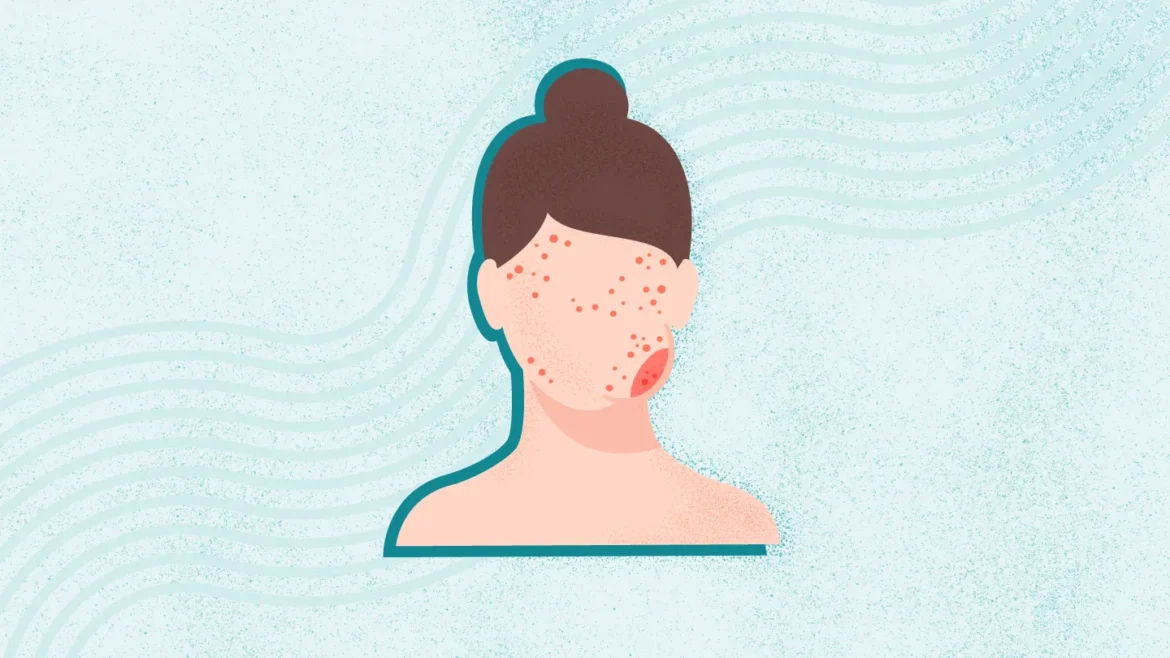By Desmond Nleya
Allergies are among the most common chronic health conditions worldwide, affecting millions of people of all ages. In the United Arab Emirates (UAE), rapid urban development, desert climate, and high pollen and dust levels have led to an increase in allergy-related cases. From seasonal sneezing fits to serious food reactions, understanding allergies—how to recognize, prevent, and treat them—is essential for maintaining a healthy and active lifestyle.
What Are Allergies?
Allergies occur when the immune system reacts to a foreign substance—known as an allergen—that doesn’t cause a reaction in most people. These allergens can be found in food, air, medications, or even through skin contact. When exposed, the body releases chemicals like histamine, which cause symptoms ranging from mild to life-threatening.
Common Allergy Symptoms
Recognizing the symptoms of an allergy is the first step to managing it. Symptoms can vary based on the type of allergy and the individual. The most common symptoms include:
• Sneezing, nasal congestion, or a runny nose
• Itchy or watery eyes
• Skin rashes, hives, or eczema
• Shortness of breath or wheezing
• Swelling of the lips, face, or throat
• Stomach pain, diarrhea, or vomiting (often due to food allergies)
• Anaphylaxis (a severe, life-threatening reaction)
If you notice recurring symptoms in response to certain environments, foods, or seasons, you may be dealing with an allergy.
Common Allergies in the UAE
The UAE presents unique environmental and lifestyle factors that contribute to the prevalence of allergies:
1. Dust and Sand Allergies: Frequent dust storms and desert winds make dust a major allergen. People often suffer from sneezing, itchy eyes, and asthma-like symptoms during these events.
2. Pollen Allergies: While the UAE is largely desert, imported plants and landscaping in urban areas release pollen that triggers seasonal allergic rhinitis (hay fever).
3. Food Allergies: Common food allergies include nuts, shellfish, dairy, and eggs. These are especially dangerous in children and may result in anaphylaxis if untreated.
4. Mold and Dampness: Humid indoor environments (especially in air-conditioned homes) can encourage mold growth, leading to respiratory issues.
5. Pet Allergies: Pet dander from cats and dogs can trigger allergic reactions, particularly in expats who may have brought pets into their homes.
6. Perfume and Chemical Sensitivities: Strong perfumes and chemical cleaning products are widely used in the UAE and can trigger skin and respiratory allergies.
How to Know If You Have an Allergy
If you experience recurring symptoms linked to specific triggers, you should consider allergy testing. This can include:
• Skin Prick Test: Small amounts of suspected allergens are introduced to the skin to see if a reaction occurs.
• Blood Tests: These check for specific antibodies related to allergic reactions.
• Elimination Diets: Used to diagnose food allergies by removing and reintroducing suspected foods under medical supervision.
Consulting an allergist or immunologist in the UAE is highly recommended for accurate diagnosis and treatment.
Preventing Allergies
Prevention involves reducing exposure to allergens. Here are practical tips suitable for residents in the UAE:
• Use HEPA air purifiers to reduce indoor dust and pollen.
• Close windows during sandstorms or high pollen days; stay indoors when air quality is poor.
• Shower and change clothes after being outdoors to remove pollen and dust.
• Regularly clean and vacuum your home using a vacuum with a HEPA filter.
• Avoid known food allergens and always read food labels when eating out.
• Limit use of strong perfumes and chemicals, especially in poorly ventilated spaces.
• Control indoor humidity to prevent mold growth, especially in bathrooms and kitchens.
Curing and Treating Allergies
While there is no permanent cure for most allergies, they can be effectively managed through:
1. Antihistamines: These help relieve symptoms like sneezing, itching, and runny nose.
2. Decongestants: Used for short-term relief of nasal congestion.
3. Inhalers: For asthma or respiratory allergies.
4. Corticosteroids: Reduce inflammation in severe allergic reactions.
5. Allergy Shots (Immunotherapy): A long-term treatment that gradually desensitizes your immune system to specific allergens.
6. Epinephrine Auto-injectors (e.g., EpiPen): Used for emergency treatment of anaphylaxis.
Always consult a licensed healthcare professional before starting any medication or treatment plan.
Conclusion
Allergies are a common but manageable health condition. With the right knowledge and preventative actions, UAE residents can lead a comfortable and healthy life despite environmental and lifestyle challenges. Early diagnosis, regular check-ups, and conscious living—such as reducing exposure to dust, pollen, and allergens—are key steps toward managing allergies in the UAE context.
If you suspect you have an allergy, don’t wait. Visit a local healthcare center, allergist, or immunology clinic to get tested and begin managing your condition effectively.
Stay informed. Stay safe. Live allergy-free.


